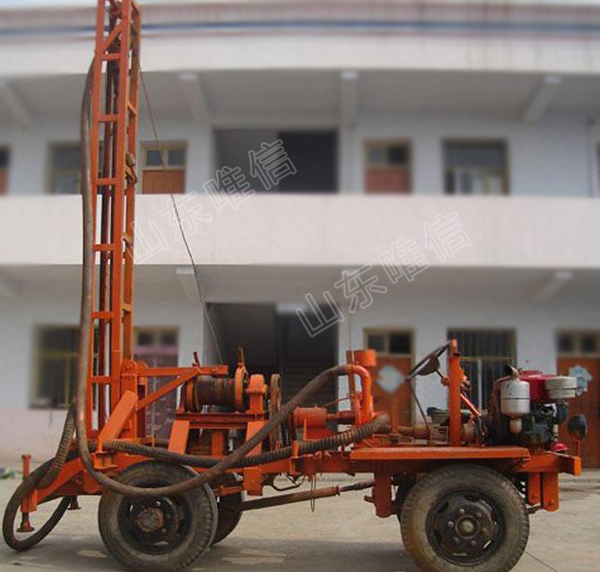

Water well drilling rigs are complex machines used to bore holes into the ground to access underground water sources. Several factors can affect the performance, efficiency, and success of water well drilling rigs. Here are some of the key factors:
Geological Conditions: The composition of the ground, including the type of rock, soil, and other geological formations, can greatly influence drilling rig performance. Hard rock formations may require more powerful drilling equipment, while softer soil may allow for faster drilling.
Depth and Diameter of the Well: Deeper and wider wells require more powerful and robust drilling rigs. The drilling depth and diameter impact the rig's ability to reach the desired water source efficiently.
Drilling Method: There are various drilling methods, including rotary, percussion, and auger drilling. The choice of method depends on factors such as the geological conditions, required well diameter, and the availability of equipment.
Rig Type and Design: Different types of drilling rigs, such as truck-mounted, trailer-mounted, or skid-mounted rigs, have varying capabilities and limitations. The rig's design, power, and mobility affect its ability to access remote locations and maneuver on-site.
Power Source: Water well drilling rigs can be powered by diesel engines, electric motors, or even hydraulic systems. The power source impacts the rig's efficiency, fuel consumption, and environmental impact.
Casing and Well Design: The design and installation of casing in the well play a crucial role in preventing collapse and ensuring water quality. The drilling rig must be capable of installing casing properly.
Drilling Fluids: Drilling fluids (mud or other additives) are used to lubricate the drill bit, remove cuttings, and stabilize the wellbore. Proper management of drilling fluids is essential for efficient drilling and protecting the well.
Maintenance and Operator Skill: Regular maintenance and skilled operators are critical for the reliable and safe operation of drilling rigs. Well-trained operators can adapt to changing conditions and address challenges effectively.
Environmental Considerations: Environmental regulations and concerns may restrict drilling activities in certain areas. Rigs may need to adhere to specific standards to minimize ecological impact.
Site Accessibility: The ease of accessing the drilling site impacts the type of rig that can be used. Remote or challenging locations may require specialized rigs or transportation methods.
Weather Conditions: Adverse weather conditions such as extreme temperatures, heavy rain, or snow can impact drilling operations, equipment performance, and worker safety.
Budget and Resources: The available budget and resources determine the type of drilling rig that can be utilized. More advanced and powerful rigs tend to be costlier to acquire and operate.
Local Regulations: Local regulations and permits are essential for conducting drilling activities legally. These regulations may dictate drilling depth, well construction, and other aspects.
In summary, water well drilling rig performance is influenced by a combination of geological, technical, operational, environmental, and logistical factors. Rig selection, maintenance, and proper planning are crucial for successful water well drilling operations.

© Shandong China Coal Group. © 2016
Address:No. 11, North of Kaiyuan Road, High-tech Zone, Jining City, Shandong Province, China
Executive Editor: Linda Zhang